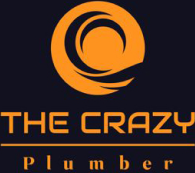Upgrading your home’s plumbing system might not be the first thing on your mind, but it can significantly improve your home’s functionality, safety, and value. Knowing when it’s time for an upgrade can save you from unexpected emergencies and costly repairs down the line. Here are some key signs that indicate your plumbing may need an upgrade.
Frequent Leaks and Repairs
If you’re constantly dealing with leaks and calling a plumber for repairs, it might be time to consider upgrading your plumbing system. Frequent leaks can indicate aging pipes that are prone to corrosion and damage. Upgrading to new, more durable materials can save you money on repairs and prevent water damage to your home.
Low Water Pressure
Consistently low water pressure can be a sign of old, corroded pipes or a failing plumbing system. While low water pressure can sometimes be caused by sediment buildup, it can also indicate more serious issues. Upgrading your plumbing can restore proper water pressure and improve your overall water flow.
Discolored Water
If you notice brown or yellow water coming from your taps, this could be a sign of rust in your pipes. Rust not only affects the taste and appearance of your water but can also pose health risks. Replacing old, rusted pipes with modern materials like copper or PEX can ensure your water is clean and safe to drink.
Noisy Pipes
Noisy pipes, such as banging or rattling sounds, can indicate loose or poorly secured pipes. These noises can be more than just an annoyance; they can signal underlying issues that may lead to leaks or bursts. Upgrading your plumbing can eliminate these noises and provide a more peaceful living environment.
Outdated Materials
Many older homes still have plumbing systems made from outdated materials like galvanized steel or polybutylene. These materials are prone to corrosion and breakage. Modern plumbing materials like copper and PEX are more durable and reliable. Upgrading to these materials can improve the longevity and safety of your plumbing system.
Frequent Clogs
If you’re constantly dealing with clogs, it might be time to upgrade your plumbing. Frequent clogs can be a sign of narrow, old pipes that can’t handle modern water usage. Upgrading to wider pipes can improve water flow and reduce the likelihood of clogs.
Water Damage
Visible water damage, such as stains on walls or ceilings, is a clear sign of plumbing issues. Water damage can lead to mold growth and structural problems if not addressed promptly. Upgrading your plumbing can prevent further damage and ensure your home remains safe and dry.
High Water Bills
If you’ve noticed a sudden increase in your water bills, it could be due to hidden leaks or inefficient plumbing fixtures. Upgrading to water-efficient fixtures and fixing leaks can help reduce your water consumption and lower your bills.
Costs Associated with Plumbing Upgrades
The cost of upgrading your plumbing system can vary depending on the extent of the work needed. Here are some estimated costs for common plumbing upgrades:
- Replacing old pipes: $2,000 – $15,000 (depending on the size of your home and the type of pipes used)
- Installing new fixtures: $300 – $1,500 per fixture
- Upgrading to a tankless water heater: $2,500 – $4,500
- Installing a new water filtration system: $1,000 – $4,000
While these costs can be significant, investing in a plumbing upgrade can save you money on repairs and water bills in the long run.
When to Call a Professional Plumber
It’s important to consult a professional plumber when considering a plumbing upgrade. A plumber can assess your current system, recommend the best materials and solutions, and ensure the work is done safely and efficiently. Here are some scenarios where you should call a professional:
- Assessing the condition of your pipes: A plumber can inspect your pipes and determine if they need to be replaced.
- Installing new fixtures or appliances: A professional can ensure new fixtures are installed correctly and safely.
- Upgrading your water heater: Water heater installation can be complex and dangerous, requiring professional expertise.
- Handling major renovations: If you’re renovating your home, a plumber can ensure your new plumbing system meets modern standards and regulations.
Recognizing the signs that your plumbing needs an upgrade can prevent costly emergencies and improve your home’s functionality and safety. If you’re experiencing any of these issues, consider consulting a professional plumber to discuss your options and plan for a plumbing upgrade.







